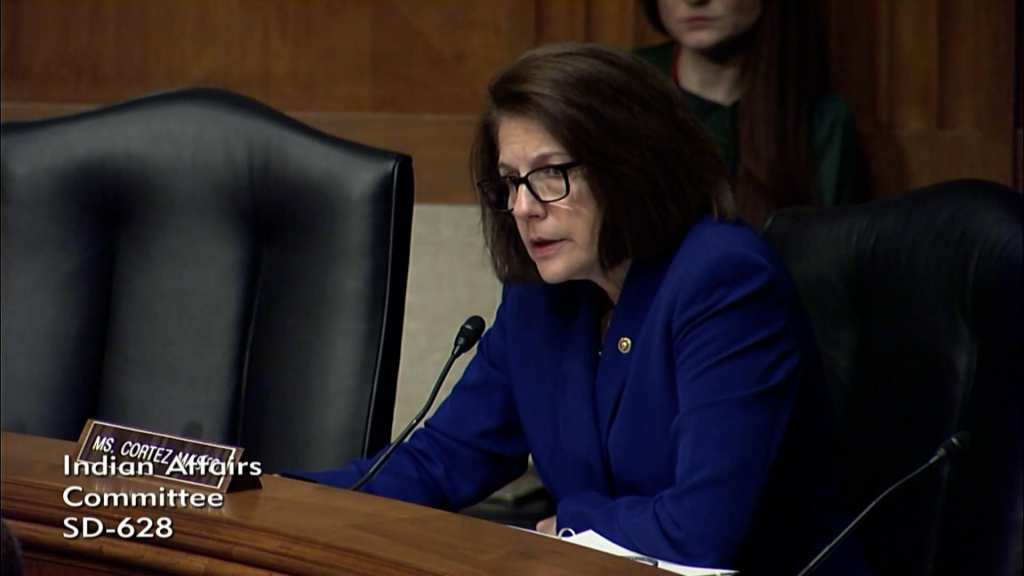
Washington, D.C. – At a U.S. Senate Committee on Indian Affairs hearing, Senator Catherine Cortez Masto (D-Nev.) called for passage of her Bridging Agency Data Gaps & Ensuring Safety (BADGES) for Native Communities Act— bipartisan legislation to support Tribal law enforcement and curb the epidemic of missing and murdered Indigenous women (MMIW), ahead of MMIW Day of Awareness on May 5.
Senator Cortez Masto has been a strong supporter of Tribal communities and has passed two bipartisan bills, the Not Invisible Act and Savanna’s Act, to combat the MMIW crisis. Thecommission created by the Not Invisible Act specifically called for passage of Cortez Masto’s BADGES for Native Communities Act to help law enforcement better serve Native communities.
Senator Cortez Masto highlighted how her bipartisan bill will support the recruitment and retention of BIA law enforcement officers, bolster federal missing persons resources, and give Tribes and states tools to combat violence.
Department of the Interior Assistant Secretary of Indian Affairs Bryan Newland discussed how long wait times for background checks when hiring BIA law enforcement officers discourages qualified applicants. He expressed support for Cortez Masto’s bill by saying, “allowing us to have ownership of this process and making sure that the buck stops with us will…allow us to be more efficient and speedy” to recruit and retain officers.
Additionally, Cortez Masto’s bipartisan IHS Workforce Parity Act advanced through committee and now heads to the Senate floor for consideration. Currently, IHS has a 25% vacancy rate for health care providers. Cortez Masto’s legislation will help attract new doctors and nurses to both the agency and Tribal health facilities that serve over 2 million American Indian and Alaskan Native Tribal members by allowing providers working part-time to access IHS scholarship and loan repayment programs.
Senator Cortez Masto has repeatedly called on the administration to do more to address the epidemic of violence against Native women and girls, including securing federal funding to protect Native communities, urging the administration to draft a plan to address this issue, and requesting the Government Accountability Office (GAO) investigate the federal response to this crisis. She’s also fought to ensure that law enforcement officers across the country have the support they need. She secured historic funding for the Byrne JAG grant program in the FY2022 omnibus. The program is the leading source of criminal justice funding for state, local, and Tribal governments and provides support for programs related to crime prevention, law enforcement, prosecution, corrections, and mental and behavioral health.
###